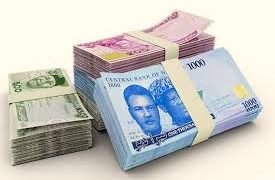The Naira’s Decline Against the Dollar Under President Tinubu’s Tenure
Since President Bola Tinubu assumed office in May 2023, the Naira has faced continual depreciation against the US Dollar. Tinubu lifted Nigeria’s foreign currency controls in June to rejuvenate transactions through the official market, intending to unify the Naira’s exchange rates. However, this move has exacerbated the currency’s weakness and escalated inflationary pressures.
Presently, the Dollar is trading at approximately N1000 to $1, a significant leap from the roughly N430 to $1 rate when Tinubu took office.
The Central Bank grapples with a backlog of unmet forex demands on the official market, compelling individuals and businesses to resort to the black market for Dollar access. Yet, Nigeria has experienced declining Dollar inflows due to reduced investments and decreased crude oil exports, responsible for over 90% of the country’s export earnings.
Although Tinubu’s removal of currency controls was initially welcomed by investors, the expected ease in accessing foreign currency is yet to materialize.
As per central bank data, Nigeria’s forex reserves declined from $37 billion in January to $33.5 billion in September. Moreover, revealed audited accounts unveiled a $19 billion commitment in derivatives, significantly reducing the liquid reserves.
JPMorgan estimates Nigeria’s net FX reserves at a mere $3.7 billion by the end of 2022, far lower than previous estimates. Furthermore, the National Economic Council reported a meager $473,755 in Nigeria’s crude excess account, a staggering drop from the $20 billion peak in 2008, due to successive withdrawals to support the Naira and government spending.
Several factors contribute to the Naira’s weakening against the Dollar during Tinubu’s administration, including a decline in oil revenue, high import dependence, low foreign investor confidence, and soaring inflation rates above 15%.
In response, the Central Bank of Nigeria, under Governor Yemi Cardoso, has introduced multiple policies to support the Naira and bolster Dollar liquidity. Notably, the CBN lifted foreign exchange restrictions on the importation of 43 items, encompassing a wide range of goods like rice, cement, and various building materials.
The CBN has disclosed plans to address the existing backlog of foreign exchange transactions, outlining measures to stabilize the currency’s value against the Dollar.















